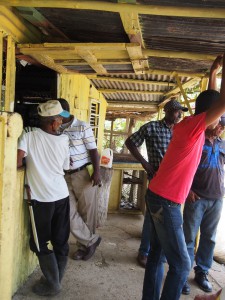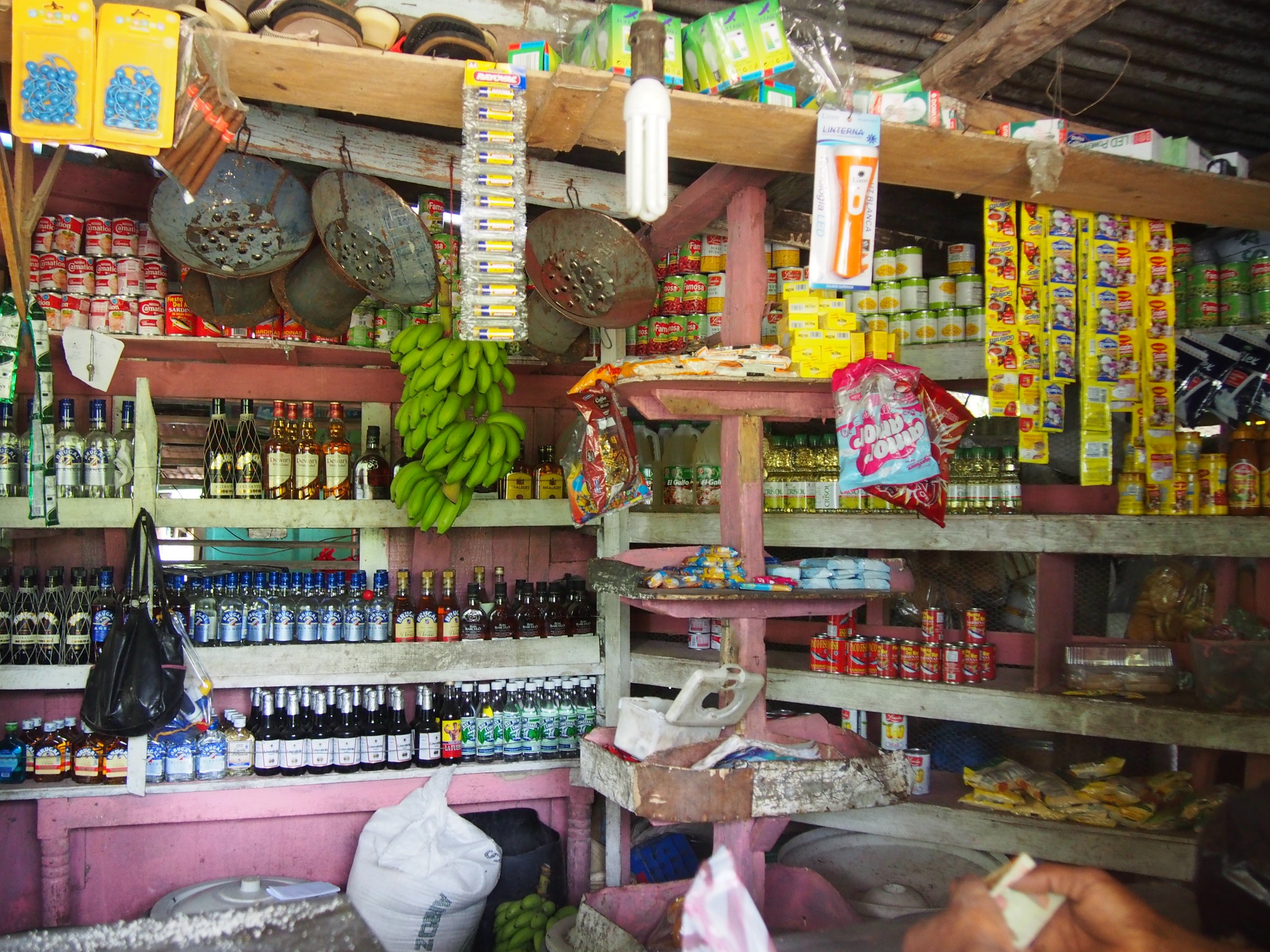By Annie Rose Ansley, Field Communications Fellow in the Dominican Republic
A fundamental component of Dominican life, whether in the middle of bustling city streets or tucked away in the most remote, rural community, is the colmado. A colmado is a small corner store, or the Dominican equivalent of a mini-mart. And they truly are on almost every corner; the stores are as ubiquitous as Starbucks in New York City.
Two of the three clients with Esperanza (HOPE’s partner in the Dominican Republic) that I’ve interviewed thus far were, incidentally, colmado owners. People in their neighborhoods can stop by for fresh bread, a bag of chips, a soda, seasoning mix, eggs, candy. . . Some colmado workers also have bikes and deliver–for free!–to your door, which is especially convenient when you need another 5-gallon water jug. However, colmados aren’t mainly about convenience; they’re mainly about community.
In the U.S., the goal is “get in, get out”; in the D.R., it’s more of a “come in, hang out” mentality. I have been shocked at the number of customers I’ve seen at several tiny colmados; they seem to arrive from nowhere, gathering in front of the store, in no rush to leave.
 At times they share a just-purchased snack or drink, or perhaps they start a game of dominoes or chess (can you imagine a chess match going on inside your local 7-Eleven?). Many colmados keep these games behind the counter and let you borrow them, along with a few plastic chairs; a game will often draw a crowd of spectators.
At times they share a just-purchased snack or drink, or perhaps they start a game of dominoes or chess (can you imagine a chess match going on inside your local 7-Eleven?). Many colmados keep these games behind the counter and let you borrow them, along with a few plastic chairs; a game will often draw a crowd of spectators.
Then there are the “colmadones”—same concept, but a little larger and with much louder music, allowing them to transform into natural party spots at night. Locals gather there to spend their evenings together. When Hamilton and I had just arrived in Santo Domingo, we were searching for bottled water downtown and were afraid to enter the extremely noisy and crowded colmadón near our hotel. (Wait, what? I’m supposed to be able to pick up groceries here right now?)
There is definitely a beauty to this colmado culture. The stores meet even more of a social need than a physical one; they are a nucleus of community activity. Dominicans are very outgoing people (I particularly love their custom of greeting everyone when they get on the bus!), and they clearly see the importance of human connection and fellowship. For them, a tiny grocery store is a perfect place to hang out, laugh, and catch up with neighbors. And unlike many of us, they feel like they have time to spare.
















